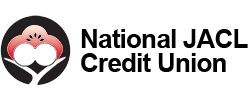Learning to be a savvy credit card user can help you maintain good financial health. If you adopt a few key rules for using credit cards, you can sidestep mistakes that lead to bad credit and avoid unnecessary debt.
Pay on time and in full
Your issuer will let you pay a small percentage of your bill, also called the “minimum amount due,” each month, and you might be tempted to do just that. But remember that if you carry a balance past your card’s grace period, you’ll see finance charges added to the remaining balance on your next bill. If you don’t pay that bill in full, you’ll be charged interest on the remainder again.
To avoid being charged interest, pay your full balance each month. And to avoid late fees or missed payments, pay your bills promptly. Making payments online is a convenient way to do it.
Missing payments and paying late can also have a negative impact on your credit score. Having a low credit score means you’ll pay higher interest rates if you need to borrow money from other lenders.
Choose a low-rate card
There can be circumstances in which carrying a balance is unavoidable. Perhaps you received a surprise medical bill or had to make an unexpected car repair. That’s why it’s important to choose a credit card with the lowest interest rate for which you qualify. But that doesn’t mean a card offering a low promotional rate that expires after a certain period and is loaded with hidden fees.
A better choice is institutions like National JACL Credit Union who offer a variety of no-fee, lower-rate credit cards for members.
Avoid charging up to your limit
Be aware of your credit utilization ratio – the amount you charge compared to your available spending limit. If your card issuer gives you a spending limit of $1,000, that doesn’t mean it’s a good idea to charge $999 each month, even if you can afford to pay the full amount when the bill comes. Credit bureaus will view you more favorably if you keep your total debt below 30% of your credit limit at all times.
What if you ordinarily have $400 of expenses that you’d like to charge each month, and that’s more than 30% of your spending limit? Once you’ve established a track record of on-time payments, try calling your issuer and asking if you qualify for a higher spending limit.
By paying your bills on time and in full, choosing a low-rate card and keeping an eye on your credit utilization ratio, you’ll avoid excess debt and build up a history of responsible credit card usage. That will set you up well for the next time you need to access credit, such as when you want a loan to buy a car or a home.
Jeanne Lee, NerdWallet
© Copyright 2015 NerdWallet, Inc. All Rights Reserved
